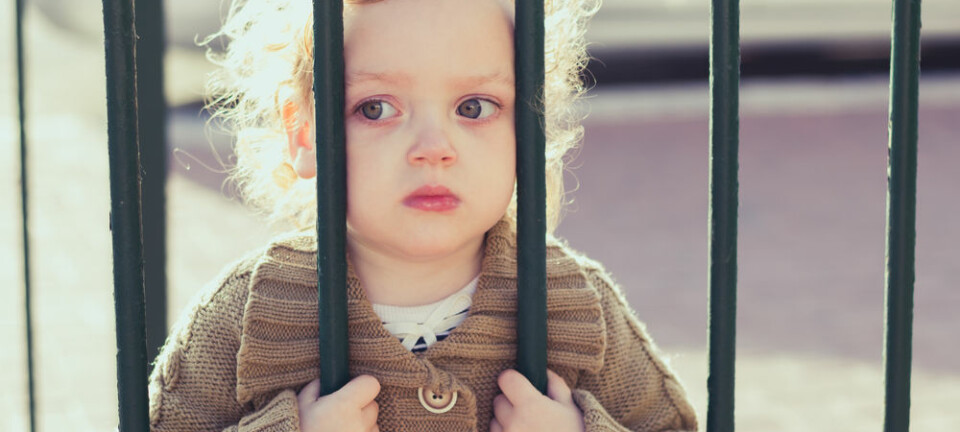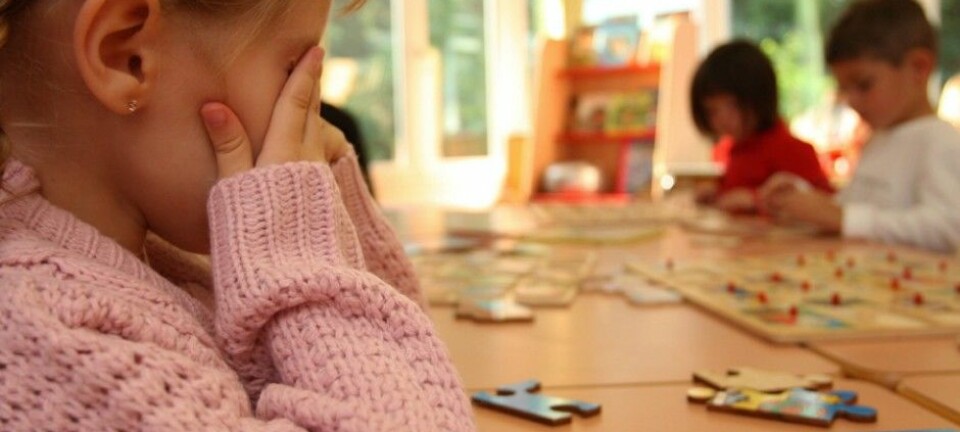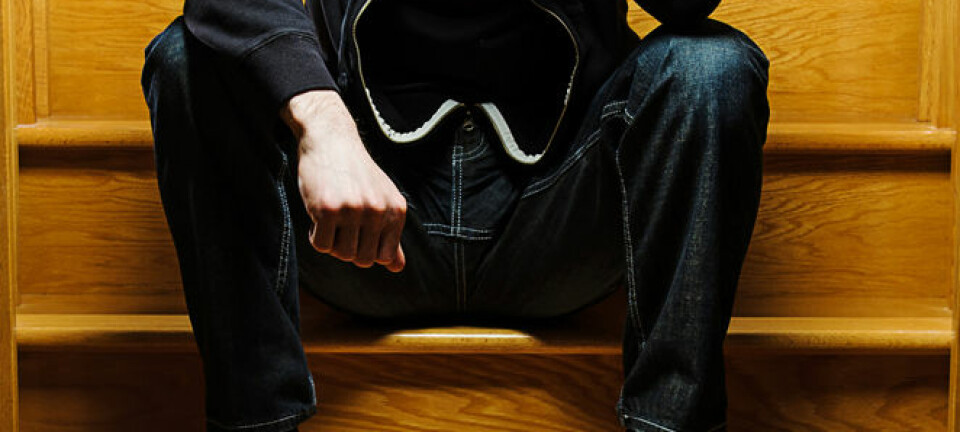
ADHD diagnosis not a good fit for daydreamers
Many children today are misdiagnosed with ADHD, say scientists in Norway.
We’ve all known them, kids who sit quietly at home or at school, lost in their own thoughts and unable to concentrate on the task at hand.
Children who struggle to concentrate and have learning difficulties, often become lost in their own thoughts. These 'daydreamers' may be diagnosed with ADHD.
But Russell Barkley, a leading expert in ADHD in the U.S., says many of these children are diagnosed incorrectly.
Barkley recently gave a lecture at Gothenburg University in Sweden. He has conducted major national surveys in the U.S. and finds that many children diagnosed with ADHD have symptoms that are so different that they deserve a completely different diagnosis, called Sluggish Cognitive Tempo (SCT).
The term has existed among researchers since the 1980s, but it is still debated as to whether or not it is different enough from ADHD that it deserves its own category in the diagnostic system.
Currently, nobody in Norway or the U.S. has been diagnosed with SCT.
Read More: ADHD increases the likelihood of becoming a teen parent
Lost in their own world
Children with SCT do not run around the classroom. They don’t bother other children. Instead, they sit quietly, lost in daydreams. Just like children with ADHD, they struggle to keep track of what the teacher says.
It is easy to overlook these students in the classroom, says Barkley.
While boys are much more likely to be diagnosed with ADHD than girls, SCT is as common in girls as boys.
ADHD changes with age
Norwegian neuropsychologist Geir Øgrim has followed Barkley's work and attended his lecture in Gothenburg. Øgrim is a member of the Gillberg Neuropsychiatry Centre at Sahlgrenska Academy at the University of Gothenburg, but also conducts research and clinical work in Norway.
Øgrim studies and treats children with ADHD. He explains that ADHD is divided into three subgroups: hyperactive or impulsive, inattentive, or a combination of the two.
How ADHD affects a child can change as the child matures, he says.
"Some children are hyperactive when they are of pre-school age. After a few years in school, they may show clear evidence of problems with concentration. After puberty, the child may be less hyperactive, but may still have difficulties concentrating. We sometimes call this ADD. Other children may be hyperactive and impulsive from childhood to adulthood, and some struggle with concentration difficulties without hyperactivity throughout their lives,” he says.
This course of development has led specialists in the field to call all of these conditions ADHD, where the manifestation of the diagnosis only changes because of the child’s age.
Read More: How does ADHD medicine work in adults?
SCT deserves its own diagnosis
Øgrim agrees that some children who have problems with concentration are so different from children with ADHD that they deserve their own diagnosis.
“The term Sluggish Cognitive Tempo (slow information processing) is characterized by low activity levels and slow thought processes, without the person having reduced intelligence. Excessive and harmful daydreaming is also a hallmark,” he says.
The ADD subgroup is thus a mix of children who have nearly full-on ADHD without clear hyperactivity or impulsivity, and children with SCT.
Medications don’t always work
While the debate over what the diagnosis should be called may not seem that important, Øgrim says having the correct diagnosis can have consequences for treatment.
"Barkley believes that only 20 per cent of children with SCT but without ADHD or ADD time benefit from traditional ADHD medicine," he says.
Øgrim has studied which children do and do not benefit from ADHD medicine, by measuring electrical activity in the brain (EEG) while the child does a task that requires attention. They are tested twice, once without medicine and once on medicine.
His findings show that roughly 25 per cent of children have a limited or negative effect from standard ADHD medication, which is consistent with other research findings.
Scientists currently know very little about how to treat SCT. Barkley says that psychosocial treatment such as social skills training and cognitive behavioral therapy can be better for SCT than for those with classical ADHD.
“People with SCT are more prone to anxiety and depression. And we know from other research that people with these vulnerabilities benefit more from psychological treatment than people who primarily struggle with acting out or hyperactivity,” says Øgrim.
----------------
Read the Norwegian version of this article at forskning.no



































